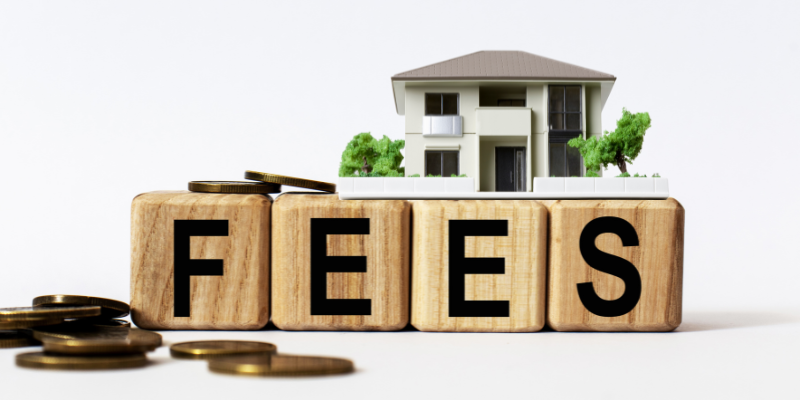
Analyzing Real Estate Market Trends in Major Cities
In the Twin Cities, homeowners have been worried about growing HOA costs in recent years. This is similar to what has been happening in other big cities’ real estate markets. As property values keep going up because there aren’t enough homes for sale and more people want them, homeowners’ associations have to boost their fees to pay for repairs and improvements to the neighborhood.
This phenomenon isn’t just happening in Minneapolis and St. Paul; it’s happening in other big cities too, as urbanization makes both property prices and the costs of living go up.
Key factors influencing these trends include inflationary pressures on building materials, higher labor costs, and the need for enhanced amenities to attract potential buyers in competitive markets. Understanding these dynamics is crucial for homeowners aiming to navigate the financial implications of homeownership in such evolving environments.
Demographic Shifts and Their Effect on Real Estate Demand
Rising HOA dues are a major factor for Twin Cities homeowners as the changing demographics of the area have an ever-increasing effect on housing demand. Competition for available homes has escalated due to the surge of millennials seeking urban living and amenities and the aged population preferring to downsize or move into communities with more support services.
This surge in demand often leads to increased property values and, consequently, higher HOA fees as associations strive to maintain and enhance community amenities to meet diverse resident expectations. Additionally, demographic shifts bring varying preferences for housing styles and community features, prompting HOAs to invest in upgrades or new facilities that cater to these changing needs.
Operational costs and price structures within homeowner associations might be further impacted by the push toward inclusive community initiatives, which in turn can be influenced by the increasing cultural variety within the Twin Cities.
The Influence of Economic Growth on Housing Affordability
Economic growth in the Twin Cities has significantly impacted housing affordability, contributing to rising HOA fees that concern many homeowners. As the local economy flourishes, demand for housing intensifies, driving up property values and increasing homeowner association dues.
This surge in economic activity often leads to heightened costs for maintenance and services provided by HOAs, as they strive to keep pace with inflation and the elevated standards expected by residents. Additionally, new developments and infrastructure improvements attract more residents, further straining existing resources and necessitating higher fees to cover enhanced amenities and community upkeep.
Therefore, although economic expansion brings about affluence, it also presents homeowners with obstacles, such as rising HOA costs in a competitive housing market.
Exploring the Impact of Local Legislation on Housing Costs

Local legislation plays a significant role in the rising HOA fees across the Twin Cities, directly impacting housing costs for homeowners. As city councils and local governments introduce new regulations concerning property management standards, environmental compliance, and community amenities, homeowners associations (HOAs) are often compelled to adjust their fees to meet these requirements.
For example, homeowners’ associations (HOAs) may have to raise fees to cover increasing operational costs caused by regulations requiring sustainable landscaping or energy-efficient building techniques. Costly infrastructure renovations within communities may be required by changes in zoning regulations or building codes, which could increase HOA dues even more.
The goal of these laws is to make neighborhoods better and more sustainable, but as associations try to keep up with changing legal requirements, living costs often go up. Homeowners need to know about changes in local policies because they have a big impact on both their current and future property-related financial responsibilities.
Homeowners need to know about changes in local policies because they have a big impact on both their current and future property-related financial responsibilities. Contact us if you want to understand how these changes affect your long-term homeownership plans.
How Inflation Impacts Homeowner Association Costs
Inflation plays a significant role in the rising costs of homeowner association (HOA) fees in the Twin Cities, affecting everything from maintenance to amenities. As inflation increases, the cost of goods and services that HOAs rely on—such as landscaping, building materials, and utility services—also rises.
In order to stay up with community standards and make sure shared spaces are properly maintained, associations will need to alter their finances accordingly. Additionally, labor expenses for contractors and service providers can grow with inflation, further straining HOA finances.
Insurance premiums for buildings and common areas might also increase due to inflationary pressures, necessitating higher contributions from homeowners. These factors compel HOAs to raise fees so they can continue providing essential services without compromising on quality or safety.
Homeowners in the Twin Cities should be aware that these economic conditions are not unique but reflect broader trends impacting associations nationwide.
Homeowners in the Twin Cities should be aware that these economic conditions are not unique but reflect broader trends impacting associations nationwide. To learn more about how our process works in assisting homeowners with rising costs, visit our website.
Understanding the Factors Behind Hoa Fee Increases in Urban Areas
In the Twin Cities, homeowners’ association fees are going up, which is a trend that is happening more and more in cities. These fee rises are caused by a number of things.
One major reason is that it’s getting more expensive to keep up and improve shared amenities like pools, gyms, and community centers, which are important for making people’s lives better. Also, when cities grow, property management costs tend to go up because more people need services like landscaping and protection.
The inflationary pressures affecting utilities and insurance premiums also play a significant role in driving up HOA fees. Furthermore, as cities grow, infrastructure demands increase; HOAs may need to invest more in road maintenance and other communal facilities upkeep.
The need for reserve funds to cover unexpected repairs or emergencies can also lead associations to raise their fees. Understanding these dynamics helps homeowners anticipate potential changes in their financial obligations within their communities.
Effective Strategies for Managing Rising Property Taxes
Homeowners in the Twin Cities facing rising HOA fees must adopt effective strategies to manage increasing property taxes. One approach is to frequently reassess your home’s market value through independent appraisals, ensuring that tax assessments are accurate and potentially appealing them if discrepancies arise.
It might also be helpful to talk to local government authorities because they know about changes that could effect property taxes in the future. Homeowners should also stay up to date on any tax breaks or programs that are available in the Twin Cities that could help them financially.
Furthermore, active participation in HOA meetings provides an opportunity to voice concerns and collaborate on collective solutions for managing community expenses effectively. Budgeting for potential increases by setting aside savings each month can alleviate the impact of sudden rises in property taxes, allowing homeowners to better navigate these financial challenges.
Navigating Maintenance and Repair Costs in Residential Communities
Homeowners in the Twin Cities need to know how HOA fees affect the cost of upkeep and repairs in residential communities when these fees go up. Homeowners’ associations are in charge of keeping communal places clean and nice, like landscaping, common areas, and pools or fitness centers.
Rising costs in materials and labor directly impact the budget allocations for these necessary maintenance activities. Additionally, unexpected repairs due to weather damage or aging infrastructure can further strain an HOA’s finances, leading to increased fees for residents.
Proactive communication between homeowners and their associations can provide transparency about how funds are being utilized and what future expenses may arise. By staying informed about the financial health of their community and participating in HOA meetings, homeowners can better anticipate potential fee adjustments.
Knowing about these factors helps people make budget plans that will help keep their neighborhoods in good shape and appealing.
The Role of Reserve Funds in Homeowners Associations
Reserve funds play a crucial role in the financial management of homeowners associations (HOAs) in the Twin Cities, directly impacting HOA fees. These funds are set aside to cover significant future expenses and unexpected repairs, ensuring that the community’s infrastructure is well-maintained without necessitating sudden fee hikes.
Properly managed reserve funds help HOAs handle large projects such as roof replacements, pavement resurfacing, or major plumbing repairs, which can otherwise impose hefty special assessments on homeowners. A well-funded reserve also contributes to the overall financial health of an HOA, instilling confidence among homeowners and potential buyers regarding the long-term sustainability of property values.
Inadequate reserves can lead to increased monthly HOA fees as associations struggle to meet financial obligations. As costs for labor and materials rise, particularly in urban areas like Minneapolis and St.
Paul, ensuring that reserve funds are adequately funded becomes even more critical for maintaining stable HOA fees over time.
Assessing the Long-term Value of Community Amenities
When considering the rising HOA fees in the Twin Cities, homeowners should carefully assess the long-term value of community amenities. These amenities, such as pools, fitness centers, and landscaped common areas, can significantly enhance a neighborhood’s appeal and property values.
However, it’s crucial to evaluate whether these benefits justify the increased costs associated with higher fees. Homeowners need to examine the condition and maintenance schedule of these amenities to ensure they are well-maintained and continue to add value over time.
Additionally, understanding how often residents utilize these facilities can provide insight into their true worth. By weighing the immediate financial burden against potential increases in property values and quality of life enhancements, homeowners can make informed decisions about how rising HOA fees impact their investment in the community.
Energy Efficiency Upgrades: Cost-benefit Analysis for Homeowners
As homeowners in the Twin Cities face rising HOA fees, many are considering energy efficiency upgrades as a potential way to offset costs and add value to their properties. Energy-efficient improvements such as installing solar panels, upgrading insulation, and replacing old windows with high-efficiency models can reduce utility bills significantly over time.
The initial investment might be substantial, but the long-term savings on energy costs can provide a favorable return on investment. Additionally, these upgrades can enhance the overall comfort of homes by maintaining consistent indoor temperatures and reducing drafts.
In some cases, local incentives and tax rebates are available for homeowners who implement certain energy-efficient solutions, further mitigating the upfront expenses. As more HOAs encourage sustainable practices, undertaking a cost-benefit analysis becomes essential for homeowners looking to balance immediate financial outlay with future savings and environmental impact.
Evaluating Insurance Needs for Condominiums and Townhomes
As rising HOA fees become a major worry for Twin Cities homeowners, it is important to look at what kind of insurance condos and townhomes need. First, homeowners should learn about the main insurance policy their HOA gives them. This policy usually covers common places and the outside of buildings.
However, this coverage often does not extend to individual units or personal belongings. To protect their investments, homeowners must consider purchasing additional condo insurance—often referred to as HO-6 policies—which covers interior elements like flooring, cabinetry, and appliances.
These policies can also protect you from liability and pay for the HOA’s costs of assessing damage or substantial repairs to shared spaces. Because HOA fees are going up because of higher maintenance costs, checking and upgrading personal insurance coverage makes sure that you are fully protected against unexpected financial constraints.
Consulting with an experienced insurance agent familiar with local regulations and typical coverage gaps can further assist homeowners in tailoring their policies to adequately address their unique needs within the evolving landscape of condominium and townhome living in the Twin Cities.
Legal Considerations for Homeowners Associations in Changing Markets
When modifying fees to cover rising costs, homeowners associations (HOAs) in the Twin Cities face a difficult legal framework due to the real estate market’s volatility. Please be informed that homeowners association (HOA) fee increases must adhere to the guidelines established by the HOA’s bylaws and applicable state legislation.
Transparency is crucial; HOAs must provide clear communication and justification for any increase in fees, ensuring compliance with Minnesota statutes. Homeowners have the right to review financial statements and budgets to understand how their contributions are allocated.
In addition, homeowners and HOA boards must be aware of any legislative developments that may have an impact on assessment fees or association management. It is crucial that all parties comprehend their respective roles and duties under preexisting covenants and bylaws in the event that disagreements emerge around increasing costs.
Engaging with legal counsel knowledgeable in real estate or HOA law can help ensure that both homeowners and associations address these challenges effectively while maintaining community harmony.
Addressing Common Disputes Between Residents and Hoas

In the Twin Cities, rising HOA fees have become a significant concern for homeowners, often leading to disputes between residents and their homeowners’ associations. These disagreements typically center around the perceived lack of transparency in how HOA funds are allocated and managed.
Many homeowners wonder if their rising fees are being used wisely to maintain, improve, or provide benefits for the community. Miscommunication about fee increases can make things worse because residents may feel like they aren’t involved in important decisions.
Some homeowners think that the community rules and regulations are too severe or aren’t always followed, which can lead to disagreements. To solve these problems, it’s important for both sides to talk to each other openly and work together.
One way to foster trust and understanding is to encourage frequent meetings where locals may express their concerns and ask questions about how the budget is being distributed. If there are better ways for HOAs and people to communicate, tensions can be greatly reduced because everyone will know how the increased fees benefit the community as a whole.
Financial Planning Tips for First-time Home Buyers
You must factor in increasing HOA dues when budgeting for a first-time home purchase in the Twin Cities. For long-term financial security, it is critical to know how these HOA dues will affect your total spending.
Start by researching different neighborhoods and comparing their HOA costs, as these can vary significantly depending on the community’s amenities and services. Factor these fees into your mortgage calculations to avoid any surprises down the line.
It’s also a good idea to set aside some extra money in your budget in case HOA dues go up. This can happen every year as associations change their budgets for repairs and renovations. You can better manage your money and make sure you don’t get hit with unexpected charges when you move into your new house if you plan for these things ahead of time.
Additionally, consulting with a financial advisor who understands the local real estate market can provide valuable insights into planning for these recurring expenses while achieving your long-term homeownership goals.
Smart Investment Strategies in a Competitive Housing Market
In the Twin Cities, where the housing market is very competitive and rising HOA fees are a big worry for homeowners, it’s important to use smart business strategies. Homeowners should focus on making smart changes that will bring in a lot of money to raise the value of their homes.
Improvements that make your home more energy-efficient and look better from the street are especially helpful for attracting buyers and lowering the impact of rising association fees. Also, keeping up with local real estate trends and talking to knowledgeable real estate agents will help you learn more about what’s happening in your neighborhood and what people want in the market.
Diversifying investments by considering properties in areas with lower HOA fees or those offering more comprehensive amenities can also be a prudent approach to balancing costs and long-term value. Engaging in community meetings allows homeowners to voice concerns and influence decisions regarding fee structures, ensuring financial stability amidst fluctuating expenses in this dynamic market.
Comparing Property Management Practices Across Different Regions
When looking at the rising HOA fees in the Twin Cities, it’s important to look at how property management works in different areas to see how it affects expenses. In cities like Minneapolis and St. Paul, homeowners associations often incorporate comprehensive amenities and services such as landscaping, snow removal, and security, which can drive up fees. Conversely, suburban or rural areas might offer fewer services but still experience rising costs due to inflation and maintenance of shared facilities.
When you look at same practices in other metropolitan areas, you can see that things like the cost of living, property values, and the size of the community have a big impact on HOA fees. Some areas may also put more emphasis on sustainable practices or the use of new technology in management operations, which could also alter how fees are changed.
Understanding these regional differences helps homeowners anticipate potential increases in HOA fees and make informed decisions about their real estate investments within the Twin Cities area.
In cities like Minneapolis and St. Paul, where cash home buyers in New Market and cash home buyers in St. Paul actively invest, homeowners associations often incorporate comprehensive amenities and services such as landscaping, snow removal, and security, which can drive up fees.
Technology’s Role in Modernizing Property Management Services
Technology is playing a pivotal role in modernizing property management services, particularly in the context of rising HOA fees in the Twin Cities. Advanced software solutions are streamlining administrative tasks, allowing homeowners’ associations to operate more efficiently and transparently.
Automated systems for payment processing and record-keeping reduce errors and save time, ultimately minimizing operational costs that can contribute to higher fees. Moreover, online platforms facilitate better communication between board members and residents, promoting engagement and transparency about financial decisions impacting HOA fees.
Using smart technologies in property management can also lead to planned upkeep, which can help avoid expensive repairs that usually lead to higher assessments. As these digital tools become more common, they may give homeowners associations better ways to handle their resources and address concerns about rising fees in the Twin Cities housing market.
Building Sustainable Communities: Challenges and Opportunities
Rising HOA fees in the Twin Cities present both challenges and opportunities for building sustainable communities. Homeowners’ associations (HOAs) play a crucial role in maintaining shared spaces, enhancing property values, and fostering community engagement.
But rising fees can put a strain on homeowners’ budgets and make it harder for them to buy homes. As costs rise because of things like inflation, higher upkeep costs, and better amenities, HOAs have to find a balance between meeting financial needs and achieving sustainability.
Opportunities arise when HOAs invest in green infrastructure and energy-efficient upgrades that reduce long-term costs while promoting environmental stewardship. Additionally, transparent communication about budget allocations and proactive planning can help mitigate tensions among residents.
By tackling these problems in a planned way, HOAs can make communities that are strong and lively, appealing to both current and potential Twin Cities homes. If you’re planning to sell, connect with cash for houses company in Blaine or cash for houses company in St. Paul for a fast closing despite rising HOA costs.
Future Trends in Urban Development and Their Implications
As urban development continues to evolve in the Twin Cities, homeowners are increasingly concerned about rising HOA fees and their potential impact on property values. The trend towards sustainable and smart city initiatives is driving up costs as associations invest in energy-efficient infrastructure, advanced security systems, and eco-friendly landscaping.
Enhanced common facilities like fitness centers, coworking areas, and community gardens are in great demand, which is driving up operations costs. Residents are confronted with rising fees as a result of these improvements, which reflect a larger trend towards making areas more livable and linked.
As urban areas densify and new regulations come into play, homeowners need to be aware of how these changes may affect their financial responsibilities within their communities. Understanding these dynamics is crucial for navigating the future landscape of urban living in the Twin Cities.
What factors are contributing to the high HOA fees in Minneapolis today?

Homeowners in Minneapolis are experiencing significantly rising HOA fees due to a combination of factors impacting the cost of living and property management. One primary reason for the high homeowners association fees is the increased demand for maintenance and improvement of shared amenities, such as swimming pools, fitness centers, and community parks, which require regular upkeep and enhancements.
Additionally, rising labor costs and inflation have driven up expenses for essential services like landscaping, snow removal, and security. The growing complexity of regulatory requirements also contributes to higher administrative costs that associations must manage.
Moreover, insurance premiums have surged due to recent natural disasters and heightened risk assessments in urban areas like Minneapolis. These factors collectively result in elevated HOA fees that homeowners must budget for while considering their overall housing expenses in the Twin Cities region.
Is There a Cap on HOA Fees in MN?
In Minnesota, homeowners often wonder if there is a cap on HOA fees, especially given the rising costs in the Twin Cities. Currently, Minnesota law does not set a specific cap on homeowners association (HOA) fees.
Instead, the amount and increase of these fees are typically governed by the HOA’s governing documents, such as the Declaration of Covenants, Conditions, and Restrictions (CC&Rs), along with bylaws that each homeowner agrees to upon purchasing property within an association. It is crucial for homeowners in the Twin Cities to thoroughly review these documents to understand how fee increases are determined and whether any limits are stipulated by their specific HOA.
Additionally, while there isn’t a state-mandated cap on HOA fees or increases in Minnesota, associations must adhere to their own rules regarding notifications and voting procedures for raising fees. Homeowners should actively participate in association meetings and discussions to stay informed about potential changes to their financial obligations.
Understanding your rights and responsibilities as an HOA member can help you navigate these rising costs effectively.
What’s the Average HOA Fee in Minneapolis?
Homeowners in Minneapolis are increasingly concerned about rising HOA fees, which have become a significant factor in the cost of living within the city. The average HOA fee in Minneapolis varies depending on the type of community and amenities offered, but generally ranges from $200 to $400 per month for most condominium and townhome associations.
Factors contributing to these rising costs include increased maintenance expenses, enhancements to shared amenities like pools and fitness centers, and the need for reserve funds to cover future repairs or improvements. Additionally, some newer developments with extensive amenities can see HOA fees even higher than this average range.
Homeowners should carefully review their association’s budget disclosures to understand how their dues are being allocated and what potential increases might be anticipated in the future. Being informed about these factors is crucial as homeowners navigate the financial implications of living in communities governed by homeowners associations in Minneapolis.
How Much Do HOA Fees Increase on Average?
Homeowners in the Twin Cities are increasingly concerned about rising HOA fees, which have become a significant financial consideration for many residents. On average, HOA fees in the region have been increasing by approximately 3% to 5% annually, although this rate can vary based on the specific community and its amenities.
Factors contributing to these increases include inflation, enhanced maintenance requirements, and the rising costs of services such as landscaping, security, and community management. For example, communities with extensive amenities like swimming pools or fitness centers may experience higher fee adjustments due to upkeep and operational costs.
Additionally, as properties age, increased reserve fund allocations for future repairs can also drive up monthly dues. Homeowners should regularly review their association’s budget reports and engage with board meetings to better understand how their fees are being utilized and planned future increases.
Understanding these dynamics is crucial for homeowners who want to anticipate potential financial impacts and ensure that they are prepared for future changes in their HOA obligations.
| INSURANCE COMPANIES | INSURERS | INSURANCE AGENTS | HOMEOWNERS’ ASSOCIATIONS | PROPERTY INSURANCE | HOMEBUYERS |
| HOME OWNERSHIP | STAR TRIBUNE | COMPANY | MONEY |

